[vc_row][vc_column][vc_column_text]
Biodata
FULL NAME: Ike Ibrahim Shorunmu
DATE OF BIRTH: October 16,1967
NICKNAME: Ike Anobi
START OF FOOTBALL CAREER: Played street football as a young boy in primary and secondary school then joined Berec FC, Isolo, Lagos in 1981.
CLUBSIDES PLAYED FOR: Housing Corporation (Abeokuta); Stationery Stores (Lagos); Concorde FC (Abeokuta); Shooting Stars (Ibadan); FC Basle Switzerland (6 months); FC Zurich (Switzerland); Besiktas (Turkey); Lucern (Switzerland); Samsunspor (Greece); FC Juventus (Switzerland).
HONOURS WON: FA Cup 1990 (Stores); ECOWAS Cup gold 1991; League Title 1992 (Stores); ANC 92 bronze; ANC 2000 silver; ANC 2002 bronze; ANC 2006 bronze (as an assistant coach).
OTHER MEMORABLE EVENTS: Played in the prestigious UEFA Champions League; Twice selected to play in World XI team in 1999 and 2000; Played at the 2002 World Cup in Japan/Korea.
START OF NATIONAL TEAM CAREER: December 1990
OPPONENT (EVENT): Sudan(Ecowas Cup).
RESULT: Nigeria2, Sudan 0.
FIRST NATIONS CUP APPEARANCE: Senegal 1992
On my debut appearance for the Super Eagles in 1990, I felt a lot of pressure. You know, it’s not easy when you realise that you are bearing the expectations of nearly 200 million people. But I was confident since the game was played in Lagos as I had the fans supporting me because I was a Stationery Stores player at that time.
THE QUALIFIERS
NIGERIA did not feature in the 1998 edition of the Nations Cup held in Burkina Faso as we were serving a CAF suspension for boycotting the 1996 edition in South Africa. By the time the qualifiers came round for the 2000 edition, we were all eager to return to Nations Cup action and the fact that Nigeria was co-hosting with Ghana was an added incentive.
The qualifiers pitched us against Burkina Faso, Burundi and Senegal in Group 5. We were comfortably placed in our group before CAF withdrew the hosting rights of the championship from Zimbabwe. CAF chose Nigeria and Ghana to co-host the Nations Cup for the first time in the history of the tournament. Thus did we qualified automatically with Ghana and all our results in the qualifiers were cancelled.
PREPARATION AND SQUAD SELECTION
I had been with the senior national team for a long time understudying goalkeepers like Peter Rufai, Aloy Agu, David Ngodiga and Wilfred Agbonivbare. So I thanked God that I eventually became the number one choice for Nigeria, going into the 2000 Nations Cup co-hosted by Ghana/Nigeria. It took a long time but it was worth the wait.
I was playing professional football with Besiktas in Turkey when I was invited to camp by the technical adviser, Jo Bonfrere who was assisted by Amodu Shaibu and Stephen Keshi.
We camped in Atalaya Park Golf Hotel in Malaga, Spain in preparation for the tournament. Bonfrere selected the Malaga camp not only because they had good facilities, but also for the team to focus and concentrate on the task at hand with no distraction whatsoever. We couldn’t really achieve that if we had camped in Nigeria.
I arrived the camp to the warm embrace of my colleagues and the technical crew. My room-mate was Finidi George. We usually shared the same room when in camp. In private, we did many funny things together but once in the public, we were both known to be very quiet guys!
We had a very good camp in Malaga. The hotel facilities were excellent. If we had anything to complain about, I guess it was the food. Usually we missed our local delicacies but that was part of the sacrifice for preparing for a tournament of such magnitude. We spent about two weeks in Malaga.
There was no heavy training because the season was on in Europe and all the players were in good physical condition. So, most of the training we had were with the ball, tactical play and the normal physical conditioning. We also played a number of friendly matches against clubsides in Spain which helped the team to be match fit. I remember the last friendly we played was against Sevilla and we drew 0-0 before we travelled to Nigeria for the Nations Cup proper. We had a fantastic time at Malaga!
Bonfrere related well with all the players because he knew we were all professionals and mature. He was free with us and was readily accessible and the players also warmed up to him. Stephen Keshi also did well since he had played the game before and was familiar with all the players as a former team captain. He always shared his experience with us and we all respected him. We had a united camp.
We boarded a KLM flight from Malaga to Amsterdam then took a connecting flight to Lagos. It was really enjoyable anytime we travelled as a team because of all the funny things we did on the plane. Other travelers on board always enjoyed our company seeing many Nigerian football stars together.
When we landed at the Murtala Mohammed Airport in Lagos, the reception we got was wonderful. It was as if we had already won the tournament as people trooped out to see the players. It gave us a great sense of responsibility and made our resolve to win the tournament stronger to show appreciation and make the people happy, too.
The team moved straight to the Sheraton Hotel in Ikeja, Lagos. And the food question was solved immediately as we were able to eat what we really wanted. We were back home!
We had Sunny Oyarekhua, a hero of the 1973 All Africa Games, as our Camp Commandant. An amiable police officer who was happy with the calibre of players in the camp, he treated us fine and also comported himself well because we let him know that we were mature players and family men with a sense of responsibility. So, there was mutual respect and everything was in order. There was no disturbance from our family members because we made them understand that we were in camp for business. And, as they say, it was business before pleasure. After the tournament, we could always go back to our respective families.
We had two very funny characters in the camp in Emmanuel Amunike and Tijani Babangida. Amunike used to taunt Babangida, calling him “shorty-shorty” and Babangida in turn would reply, “I know I’m a short man but what about you, senior home boy.” Then Babangida would start dramatizing the way Amunike walked, mimicking the latter’s k-legs. It was really funny to see those two when they got into their acts and they made the camp lively in a funny way. For a group of people to stay together for long periods there were bound to be some frictions. But there was nothing serious to the extent of causing disaffection in our camp. Sunday Oliseh was the team captain and he did well. He was an outspoken person. We listened to him and he respected us, too, both on and off the field of play. Mutiu Adepoju was the assistant captain. He was, however, a cool person so we got the right balance.
The coaches employed different game-plans based on the opposition and this influenced the squad selection. And since that was purely the coach’s responsibility, every player was always ready to give his best whenever he was called upon. Collectively, we approached each match as they came. The coaches had done their part and it was down to us to interprete their instructions on the field of play which I think we did to the best of our ability.
Personally, before every game, I usually relaxed and focused on the match at hand. I’m a lover of Bob Marley’s reggae music and I used to play it to relax before matches. As the last line of defence, the coaches always encouraged and advised me not to put myself under unnecessary pressure.
Initially, Anthony Kojo Williams was the NFA chairman but he was replaced by Brig. Gen. Dominc Oneya (Rtd.) just before the tournament started. Damishi Sango was the minister of sports.
THE TOURNAMENT
The tournament comprised of four (4) groups as there were sixteen (16) teams for the finals. Groups A and B were in Ghana (Accra & Kumasi) while Groups C and D were in Nigeria (Kano & Lagos) respectively.
Ghana, as co-host alongside Nigeria, had the honour of hosting the opening game and conducting the opening ceremony while the final was awarded to Nigeria. We had a tough first round group comprising of two North African teams – Tunisia and Morocco – and a dark horse, Congo to contend with in Lagos. When going to the stadium on match days, Stephen Keshi usually led the singing in the bus. Later Amunike took over. We sang various songs and mostly ended them with Christian songs. Skipper Oliseh usually led the prayer session.
We started the tournament with a six-goal thriller against Tunisia. The North Africans were known for their fast and fluid- passing game with ability to launch dangerous counter-attacks. But we were ready for them as we fired from all cylinders to beat them 4-2. Austin Okocha and Victor Ikpeba scored two goals each. Nwankwo Kanu was in superb form too and won the Man of the Match award as he had a hand in all our goals.
Having won the first game, our fans expected nothing less than another victory in the second game to seal our qualification into the quarter-finals. But Congo proved a hard nut to crack and eventually, the game ended in a scoreless draw. The fans got very angry and threw missiles at us and chanted abusive songs. It got so bad that they were ready to lynch us. We left the stadium under a tight security escort. It was a very scary experience and the players felt very bad, wondering what could have happened if we had lost the game. But with four points, we were still on track to qualify for the knockout stage.
The Congo draw affected the fans’ belief in us and they were obviously not expecting much from us when we confronted Morocco who were considered a much bigger foe than Congo. But we were determined to win back the confidence of the fans. From the blast of the whistle, we went all out against the Moroccans, giving them no breathing space. We beat them 2-0 courtesy of goals from Finidi George and Julius Aghahowa. Okocha was magical as he ran rings round the North Africans and totally stole the show from 1998 African Footballer of the Year, Mustapha Hadji. Finidi won the Man of the Match award.
The victory took us to seven points to top Group D and we remained in Lagos to play Group C runners-up, Senegal in the quarter-finals.
The match against the Lions of Senegal was the most memorable. Having dispatched Morocco to move into the quarter-final, most people did not envisage that Senegal would pose a serious threat to our title ambition. But right in front of our vociferous home crowd, the Lions came out to spoil our fun and they almost succeeded. Senegal scored first and we went searching for the equaliser which refused to come in the first half.
We continued to mount pressure in the second half but to no avail as the Senegalese contained all that we threw at them. Time was fast running out and the atmosphere was tense. Bonfrere then brought on Julius Aghahowa who turned out to be the revelation of the tournament for Nigeria. Oliseh who had been left out because he was just recovering from a slight fever also volunteered to come in and the coach obliged him to join the fray. The two introductions turned the table around as Aghahowa scored the equaliser from Oliseh’s long pass late in the game to send the fans into wild jubilations.
It was Aghahowa again who scored the winner to book Nigeria’s place in the semi-final. It was a huge relief for everyone as it would have been a huge disaster if Nigeria, playing at home, could not qualify for the semi-final. The downside for us was that Okocha got a red-card in the match and would miss the semi-final. Having put the Senegal scare behind us, we were in a good frame of mind to confront South Africa who had beaten co-host Ghana to book a semi-final berth. The match, in a way, had an undertone of a battle for supremacy because South Africa hosted and won the 1996 edition which Nigeria missed despite being the defending champions due to political friction between the governments of the two countries.
With Okocha out of the game due to his suspension, coach Bonfrere deployed Babangida, a right-winger renowned for his speed, to play wide from the left wing. The move paid off handsomely as Babangida struck the first goal barely a minute into the game. And before the South Africans could settle down from that early setback, Babangida scored the second goal and the Bafana Bafana never recovered. Nigeria zoomed into the final to confront our perennial rivals, Cameroun. I remember an incident before the final game – the jersey issue. The NFA brought out white jerseys and the players did not like it. They preferred to wear green which is Nigeria’s home colour and because we were the host, we felt we should enjoy that privilege.
Besides, the players believed that we seemed to have more luck with the green jersey. But the NFA officials said that Cameroun won the toss of the coin to pick a colour ahead of Nigeria at the pre-match meeting. They picked green and we had to settle for white.
Indeed, right from the start of the match, the luck was against us as Cameroun scored two goals within the first 15 minutes or so. Whatever game-plan we had for the match was forgotten and it was every player trying to do whatever he could just to ensure we scored too. The situation was that bad! The stadium atmosphere was tense and that brought so much pressure on all the players. But we fought back and we were able to reduce the tally when Chukwu Ndukwe scored just before half time.
Early in the second half, the match became 2-2 when Austin Okocha scored a spectacular goal from about 25 yards. The National Stadium went absolutely crazy and we started believing that our luck had turned for the good. But tried as much as we could, neither side could score again even in extra time and so the match went into penalties.
I tried my best to stop some of Cameroun’s penalty kicks. As the goalkeeper, I knew that my performance would be crucial to our victory but it wasn’t to be. Kanu missed his kick and Cameroun also missed one. Victor Ikpeba’s kick hit the crossbar, landed inside the goal-line and bounced back into play. I was standing behind the goal-line so I saw that the ball went in. But the goal was ruled out by the referee who decided that the ball didn’t cross the line. Our luck had finally run out.
Rigobert Song scored Cameroun’s last kick and they won the shoot-out. The National Stadium became as quiet as a graveyard. Surprisingly, however, the fans did not harass us this time. I think they realized that we tried our best. We were all so disappointed. Oliseh cried like a baby during the silver medal presentation.
THE AFTERMATH
We lost the cup and there was no celebration. No popping of champaigne and, worse still, we were abandoned by the NFA. It was a very sad episode. The expectation that the Eagles would lift the cup on home soil did not come to reality and in the process, nobody valued the second place and the silver.
Back at the Sheraton Hotel, people around did their best to cheer us up. At least, they appreciated that we gave our best but it was not so with the NFA officials. That night, none of us went for dinner because we were not happy. There was no reception for us by the government for obvious reasons. And by the next day, all the players left one by one either to their respective clubs or to join their families. The media was fair enough on their part. They even criticized the referee for disallowing Ikpeba’s goal.
Soon after the Nations Cup, we played a competitive game first game against Sudan in Lagos. We could not score in the first half and, as usual, the fans went crazy. Although we eventually won the game 2-0, the players felt bad by the behaviour of the fans and from then on, they did not like to play in Lagos anymore and subsequent matches were played in Port Harcourt. The Port Harcourt fans received us well and supported the team even when things were not going well or when the goals did not come early. That is the kind of atmosphere where players feel appreciated and will be ready to go the extra mile.
The major lesson I learnt from the 2000 Nations Cup tournament was that there are no minnows in football anymore. Nigerians must learn to support their team at all times because no player likes to lose. In Europe, the fans support you till the final whistle and even if you lose, they will still appreciate you because they know you have put in your best. They encourage you to do better in the next game. Nigerian football fans, particularly Lagos fans, must learn from this.
RELATED: Nigeria’s AFCON Stories Episode 12 – South Africa 1996 By Mumini Alao
THE SQUAD:
GOALKEEPERS: Ike Shorunmu (Besiktas, Turkey), Ndubuisi Egbo (AI Masry, Egypt), Murphy Akanji (Berger, Lagos)
DEFENDERS: Efetobore Sodje (Luton Town, England), Gbenga Okunowo (Benfica, Portugal), Furo Iyenemi (Sion, Switzerland), Taribo West (AC Milan, Italy), Celestine Babayaro (Chelsea, England),
Godwin Okpara (PSG, France)
MIDFIELDERS: Finidi George (Real Betis, Spain), Sunday Oliseh (cpt) (Juventus, Italy), Augustine Okocha (PSG, France), Garba Lawal (Roda Kerkrade, Holland), Tijani Babangida (Ajax Amsterdam, Holland), Emmanuel Amunike (Barcelona, Spain), Mutiu Adepoju (Real Sociedad, Spain)
FORWARDS: Benedict Akwuegbu (Grazer AK, Austria), Nwankwo Kanu (Arsenal, England), Victor Ikpeba (Borussia Dortmund, Germany), Julius Aghahowa (Esperance, Tunisia), Raphael Chukwu Ndukwe (Bari, Italy), Jonathan Akpoborie (Wolfsburg, Germany).
COACH: Johannes Bonfrere (Holland)
ASSISTANT COACHES: Stephen Keshi, Shaibu Amodu.
Please click here to join the conversation on our forum[/vc_column_text][/vc_column][/vc_row]


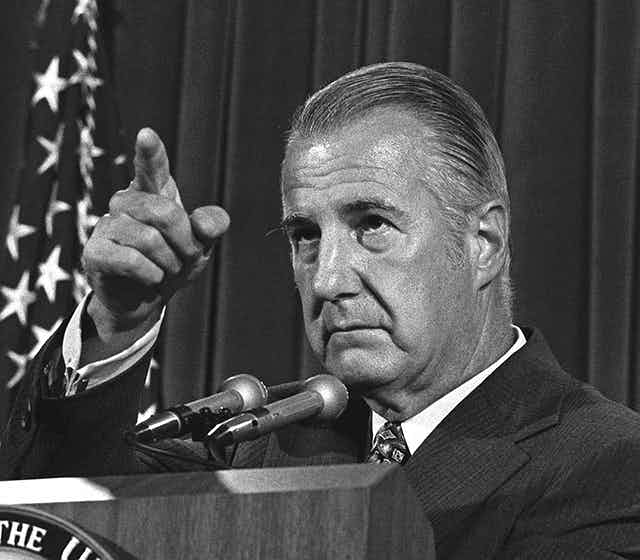
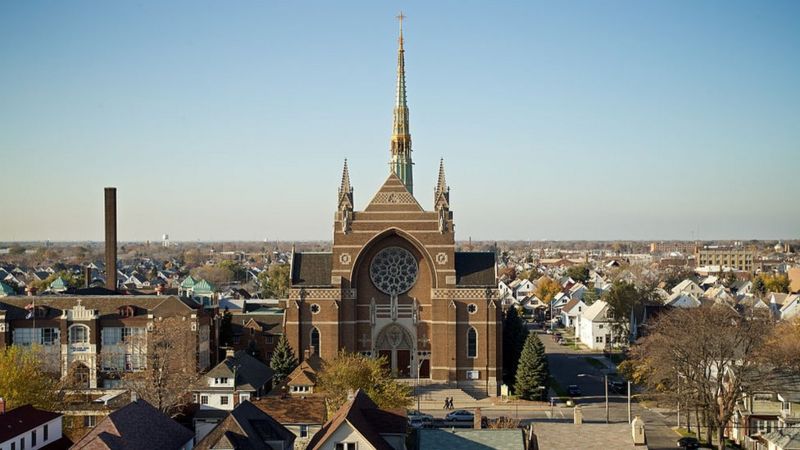
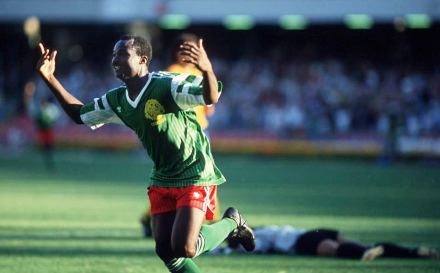
![Watch Odegbami recreate his first goal in the 1980 AFCON final [Video] 6 Watch Odegbami recreate his first goal in the 1980 AFCON final [Video] 6](https://naijasuperfans.com/wp-content/uploads/2020/03/20200323_165745.png)
![How Nigeria won AFCON in 1980 – Segun Odegbami with Mumini Alao [Video] 7 How Nigeria won AFCON in 1980 – Segun Odegbami with Mumini Alao [Video] 7](https://naijasuperfans.com/wp-content/uploads/2020/03/20200321_201622.png)


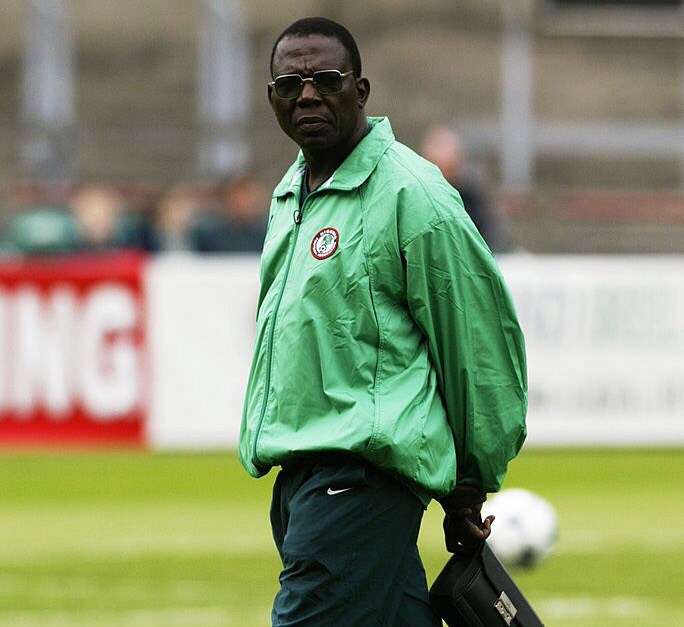
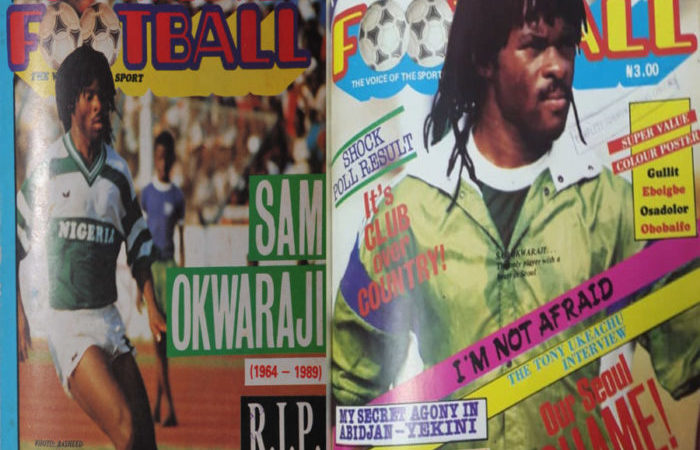
Pingback: Nigeria's AFCON Stories Episode 14 - MALI 2002 - Naija Super Fans